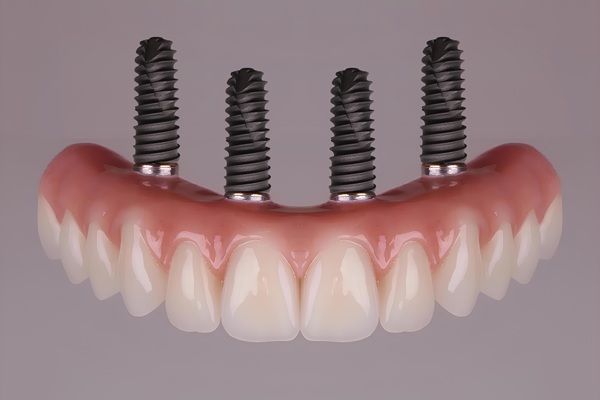 Dental crowns are among the most highly versatile restorations, serving both restorative and cosmetic purposes. They can both save teeth as well as help dentists replace missing ones. These restorations have been one of the most popular and effective dental restorations for decades. Here are some common ways dentists use dental crowns to restore and maintain smiles.
Dental crowns are among the most highly versatile restorations, serving both restorative and cosmetic purposes. They can both save teeth as well as help dentists replace missing ones. These restorations have been one of the most popular and effective dental restorations for decades. Here are some common ways dentists use dental crowns to restore and maintain smiles.
Common uses for dental crowns
Simply put, dental crowns are tooth-shaped caps cemented over natural teeth or dental implant posts. They can consist of metal, porcelain, tooth-colored composite resin, zirconia, or a combination of materials. Along with this, they are custom-made to fit a patient's particular mouth and needs.
Save decayed or damaged teeth
Sometimes, teeth become decayed or damaged to a point where simple fillings or composite resin dental bondings will not be enough to repair and keep them functional. However, instead of pulling the tooth entirely, a dentist can cover the compromised tooth with a dental crown. The dental crown holds the tooth together and repairs its appearance. In addition, the crown resorts the tooth's chewing function and helps protect it from future decay.
Reinforce root canal-treated teeth
After a dentist performs a root canal, the treated tooth is devitalized. That means it no longer has nerves or the ability to sense pain. While it can still serve its purpose, it is more vulnerable to decay after the procedure. For these teeth, a dentist will often use a dental crown to cover the tooth to help protect it from decay and retain its biting force.
Stabilize and support dental bridges
Dental crowns are important components of traditional dental bridges, restorations that replace one or a few missing teeth. A traditional dental bridge is a false tooth called a pontic flanked on each side by dental crowns. The pontic fills the empty space left by the missing tooth, while the dental crowns attach the pontic to the natural teeth on either side of the space.
Top dental implants
Dental implants are small, screw-like titanium posts that replace missing teeth. The post is surgically implanted in the jaw bone, effectively acting as a replacement tooth root. However, a dental crown completes the dental implant. The dentist cements the crown over the implant post to serve as the visible replacement tooth that takes on the biting force.
Improve the appearance of badly worn teeth
Some people choose to get dental crowns for purely cosmetic reasons. For example, if a tooth is badly stained, misshaped, or damaged, the dentist can make a dental crown to cover the tooth completely. The tooth will be custom-made to look just like a natural tooth with an aesthetically pleasing appearance.
Dental crowns repair smiles
Thanks to dental crowns, patients have options for repairing and replacing teeth. These restorations not only help restore a beautiful smile but also reinforce and protect teeth that might need to be extracted otherwise. Call our office today to learn more about dental crowns and what they can do for you.
Request an appointment or call South Florida Dental Arts at 305-230-4041 for an appointment in our Miami office.
Recent Posts
Dental crowns are restorations that can address a range of dental issues, from severely damaged teeth to protecting a tooth after a root canal. They help preserve oral health and enhance a smile's appearance. In addition to being versatile, they are available in different materials, which can be helpful for individuals who want options.Dental crowns…
Dental crowns are caps that cover and replace natural tooth structures to restore their shape, function, and appearance. They are a popular restorative treatment that can address various dental issues. By investing in dental crowns, you are not only restoring the look of your smile, but you are also safeguarding the future of your oral…
Your dentist can help determine if you need dental crowns. There are many reasons for getting these restorations. The main goal is always to restore the tooth and enhance its functions. Here are the signs you may need dental crowns soon.Losing at least one tooth can cause more dental problems. It can lead to dental…


